Faire bouillir l’eau est un processus fondamental dans la cuisine quotidienne et dans diverses applications industrielles.. Une croyance commune suggère que l’ajout de sel à l’eau peut la faire bouillir plus rapidement.. Cet article explore cette affirmation dans le contexte de chaudières industrielles et fournit des conseils pratiques sur l'utilisation sûre et efficace du sel dans ces systèmes.
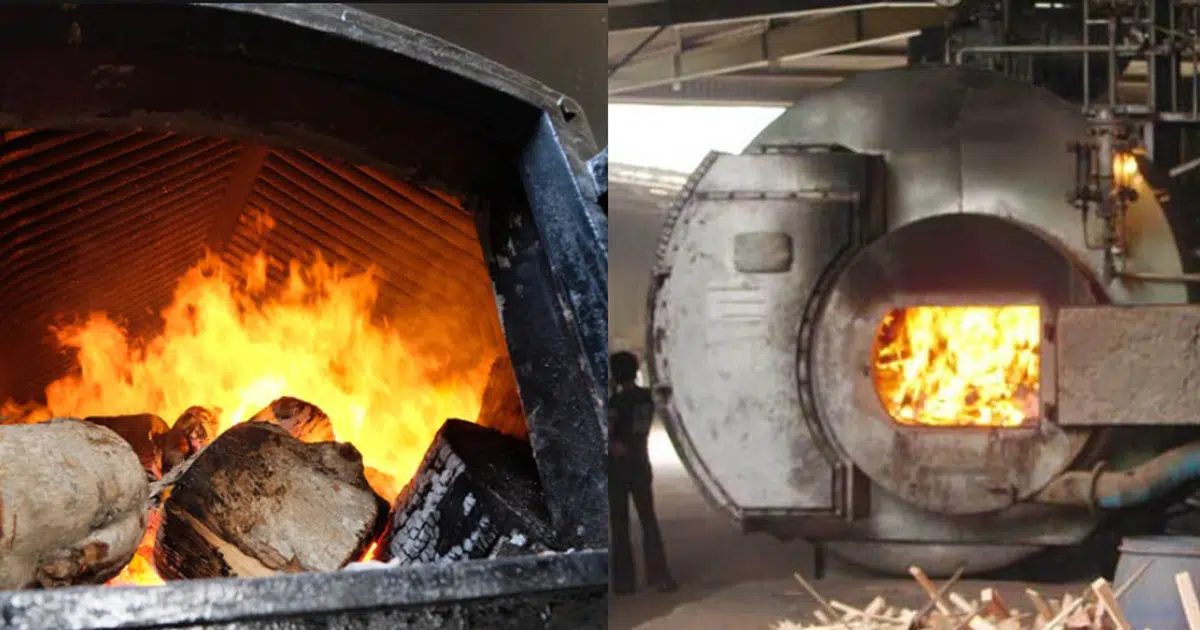 Chaudière à vapeur au bois
Chaudière à vapeur au bois
Guides & Comment faire
5 Étapes pour ajouter du sel en toute sécurité à un Chaudière à vapeur
Consultez les directives du fabricant: Avant d'ajouter des substances à votre chaudière à vapeur, consultez toujours les directives du fabricant pour garantir la compatibilité et la sécurité.
Mesurez la quantité appropriée de sel: Utilisez des mesures précises pour éviter le sursalage, ce qui peut entraîner de la corrosion ou du tartre. Typiquement, une quantité contrôlée et minimale est recommandée.
Dissoudre le sel dans l'eau: Pré-dissoudre le sel dans une petite quantité d'eau avant de l'ajouter à la chaudière. Cela aide à répartir uniformément le sel et à éviter les agglomérations..
Ajoutez progressivement la solution saline: Ajoutez lentement la solution saline à l'eau de la chaudière pour éviter des réactions chimiques soudaines qui pourraient affecter le fonctionnement de la chaudière..
Surveiller les paramètres de la chaudière: Après avoir ajouté du sel, surveiller en permanence les paramètres de la chaudière, comme la pression, température, et les niveaux d'eau, pour assurer un fonctionnement stable.
Comment mesurer correctement le sel de votre chaudière?
Une mesure précise est cruciale lors de l'ajout de sel à votre chaudière. Utilisez une balance numérique pour peser le sel avec précision. Le montant variera en fonction de la capacité de la chaudière et de l’effet recherché.. Pour applications industrielles, la concentration est généralement maintenue faible pour éviter les effets néfastes sur le matériau de la chaudière.
Le guide ultime pour améliorer l’efficacité des chaudières avec du sel
Bien que l'ajout de sel à l'eau n'accélère pas le processus d'ébullition, ça peut aider d'autres manières:
Prévenir la formation de tartre: Le sel peut aider à réduire la formation de tartre dans la chaudière, ce qui peut améliorer l'efficacité du transfert de chaleur.
Contrôle de la corrosion: Certains sels peuvent aider à contrôler le niveau de pH de l’eau, empêchant ainsi la corrosion.
Efficacité de l'entretien: Des niveaux de sel correctement gérés peuvent prolonger la durée de vie de la chaudière en réduisant la fréquence d'entretien..
Conseils pour surveiller les niveaux d’eau lors de l’ajout de sel à votre chaudière
Contrôles réguliers: Vérifiez continuellement les niveaux d'eau pour vous assurer qu'ils se situent dans la plage recommandée..
Systèmes automatisés: Utiliser des systèmes automatisés de surveillance du niveau d’eau pour maintenir des niveaux optimaux et éviter les erreurs manuelles.
Ajouts de solde: Assurez-vous que l’ajout de sel ne modifie pas radicalement les niveaux d’eau ou l’équilibre chimique..
Ce que vous devez savoir avant d'ajouter du sel à votre chaudière
Élévation du point d'ébullition: Comprendre que l'ajout de sel augmente le point d'ébullition de l'eau, ce qui signifie qu'il faut plus de temps pour bouillir.
Risques de corrosion: Des concentrations élevées de sel peuvent accélérer la corrosion, il est donc important d’ajouter du sel avec précaution.
Type de chaudière: Différentes chaudières peuvent réagir différemment au sel; tenez toujours compte du type et du modèle spécifiques de votre chaudière.
Questions
L'ajout de sel est-il la clé d'une ébullition plus rapide de l'eau dans une chaudière à vapeur?
Non, ajouter du sel n'est pas la clé d'une ébullition plus rapide. En fait, ça élève le point d'ébullition de l'eau, nécessitant plus d'énergie et de temps pour atteindre l'ébullition.
Le sel fera-t-il vraiment bouillir l’eau de votre chaudière plus rapidement?
Non, le sel ne fera pas bouillir l'eau de la chaudière plus rapidement. Cela augmentera le point d'ébullition, rendant potentiellement le processus plus lent.
Le sel peut-il avoir un impact sur le taux d’ébullition de l’eau de chaudière?
Oui, mais pas de la manière à laquelle on pourrait s'attendre. Le sel augmente le point d'ébullition de l'eau, ce qui signifie qu'il peut réellement ralentir le taux d'ébullition.
Devriez-vous envisager d’ajouter du sel à votre chaudière à vapeur pour une ébullition plus rapide?
Non, l'ajout de sel dans le but d'accélérer l'ébullition est inefficace. Les principales raisons d’ajouter du sel à l’eau de chaudière devraient être liées à l’entretien et à l’efficacité., pas de vitesse.
Quel effet le sel a-t-il sur le point d'ébullition de l'eau de chaudière?
Le sel augmente le point d’ébullition de l’eau en raison du phénomène connu sous le nom d’élévation du point d’ébullition.. Cela nécessite que l'eau atteigne une température plus élevée avant de bouillir..
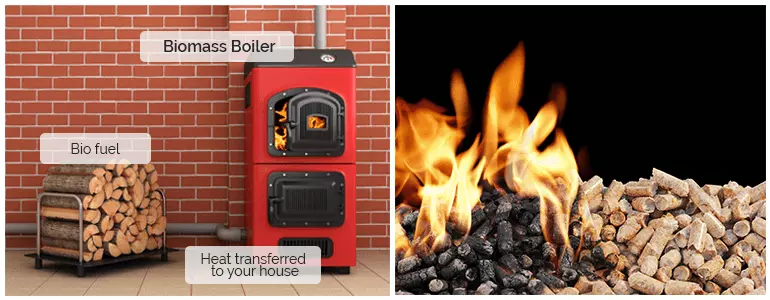
coût de la chaudière à biomasse
Listes
10 Idées fausses courantes sur l'ajout de sel aux chaudières à vapeur
Accélère l'ébullition: Incorrect; ça élève le point d'ébullition.
Améliore le transfert de chaleur: Partiellement vrai, mais spécifique au contexte.
Sans danger pour toutes les chaudières: Pas toujours; consulter les lignes directrices.
Nécessaire pour tous les systèmes: Cela dépend du type de chaudière.
Empêche toute corrosion: Seulement certains types et conditions.
Augmente l’efficacité universellement: Pas une déclaration générale.
Peut être ajouté à tout moment: Le timing et la méthode sont cruciaux.
Élimine les besoins de maintenance: Réduit, mais n'élimine pas.
Pas besoin de surveillance: Une surveillance continue est essentielle.
Fonctionne avec tous les types d'eau: Cela dépend de la chimie de l'eau.
Haut 5 Avantages de l'ajout de sel à l'eau de votre chaudière
Empêche la formation de tartre
Contrôle la corrosion
Améliore l'efficacité du transfert de chaleur
Réduit la fréquence de maintenance
Maintient l'équilibre du pH
8 Raisons pour lesquelles vous devriez (ou ne devrait pas) Ajoutez du sel à votre chaudière
Devrait: Empêche la formation de tartre.
Devrait: Aide à contrôler la corrosion.
Devrait: Améliore l'efficacité du transfert de chaleur.
Devrait: Maintient la chimie de l’eau.
Je ne devrais pas: Peut augmenter le point d'ébullition.
Je ne devrais pas: Risque de sursalage et de corrosion.
Je ne devrais pas: Peut nécessiter plus d'énergie pour faire bouillir.
Je ne devrais pas: Ne convient pas à tous les types de chaudières.
Les choses à faire et à ne pas faire lors de l'utilisation du sel dans votre chaudière à vapeur
Faire: Consultez les directives du fabricant.
Faire: Mesurer avec précision.
Faire: Surveiller les paramètres de la chaudière.
Ne le faites pas: Ajouter trop de sel d'un coup.
Ne le faites pas: Ignorer les changements de comportement de la chaudière.
Ne le faites pas: Utilisez le sel comme solution rapide aux problèmes d’efficacité.
15 Points à considérer avant d’ajouter du sel à l’eau de votre chaudière
Type de chaudière
Directives du fabricant
Chimie de l'eau
Concentration en sel
Précision des mesures
Processus de dissolution
Méthode d'addition
Systèmes de surveillance
Modifications du point d'ébullition
Risques de corrosion
Prévention de la formation de tartre
Efficacité du transfert de chaleur
Exigences d'entretien
Consommation d'énergie
Efficacité globale
Autres
La science derrière l'ajout de sel à votre chaudière à vapeur
L'ajout de sel à l'eau affecte son point d'ébullition en raison de la propriété colligative connue sous le nom d'élévation du point d'ébullition.. Quand le sel se dissout dans l'eau, il se dissocie en ions, qui perturbent la formation des bulles de vapeur nécessaires à l'ébullition. Cette perturbation élève le point d’ébullition, ce qui signifie que l'eau a besoin de plus d'énergie thermique pour commencer à bouillir.
Explorer les effets du sel sur l'eau bouillante dans les chaudières
Dans les chaudières industrielles, le but principal de l'ajout de sel n'est pas d'accélérer l'ébullition mais de gérer la chimie de l'eau et d'éviter la formation de tartre et la corrosion. L'impact pratique du sel sur le temps d'ébullition est minime et souvent contrebalancé par les avantages d'un meilleur entretien de la chaudière..
La vérité surprenante sur l’utilisation du sel dans votre chaudière
Malgré le mythe commun, l'ajout de sel à l'eau de la chaudière n'accélère pas le processus d'ébullition. Plutôt, cela élève le point d'ébullition et nécessite plus d'énergie pour atteindre le stade d'ébullition. Les avantages de l'ajout de sel résident dans sa capacité à gérer la chimie de l'eau et à améliorer la longévité de la chaudière..
Une analyse complète de l'ajout de sel à l'eau de chaudière
Une analyse complète révèle que l'ajout de sel à l'eau de chaudière présente plusieurs avantages, y compris la prévention du tartre, contrôler la corrosion, et maintenir un transfert de chaleur efficace. Cependant, il est crucial d'ajouter du sel en quantités contrôlées et de surveiller en permanence la chaudière pour garantir des performances optimales et éviter les effets indésirables.
À la découverte des mythes et réalités du sel dans les chaudières à vapeur
Le mythe selon lequel le sel accélère l'ébullition est démystifié par des preuves scientifiques montrant qu'il élève en réalité le point d'ébullition.. Les véritables avantages de l’ajout de sel résident dans l’amélioration de l’entretien et de l’efficacité des chaudières., pas pour accélérer le processus d'ébullition. Une bonne compréhension et gestion du sel dans l’eau de chaudière peut conduire à un fonctionnement plus efficace et plus durable de la chaudière..
Conclusion
L’affirmation selon laquelle l’ajout de sel à l’eau la fait bouillir plus rapidement est un mythe.. Dans le cadre des chaudières industrielles, l'ajout de sel augmente en fait le point d'ébullition, nécessite plus d'énergie pour que l'eau bout. Les principaux avantages de l’ajout de sel à l’eau de chaudière sont notamment la prévention de la formation de tartre., contrôler la corrosion, et améliorer l'efficacité globale. En comprenant et en gérant correctement l’ajout de sel, on peut garantir des performances et une longévité optimales de la chaudière.
Résumé
Ajouter du sel à l'eau augmente son point d'ébullition, ce qui signifie qu'il faut plus de temps pour bouillir. Dans les chaudières industrielles, les effets pratiques du sel sont importants pour l'entretien mais minimes pour la vitesse d'ébullition. Utiliser des méthodes telles que l'optimisation de la conception des chaudières, augmentation de l'apport de chaleur, et préchauffer l'eau pour une ébullition plus rapide. Cet article apporte des éclaircissements sur le sujet et aide à améliorer l'efficacité des applications industrielles..





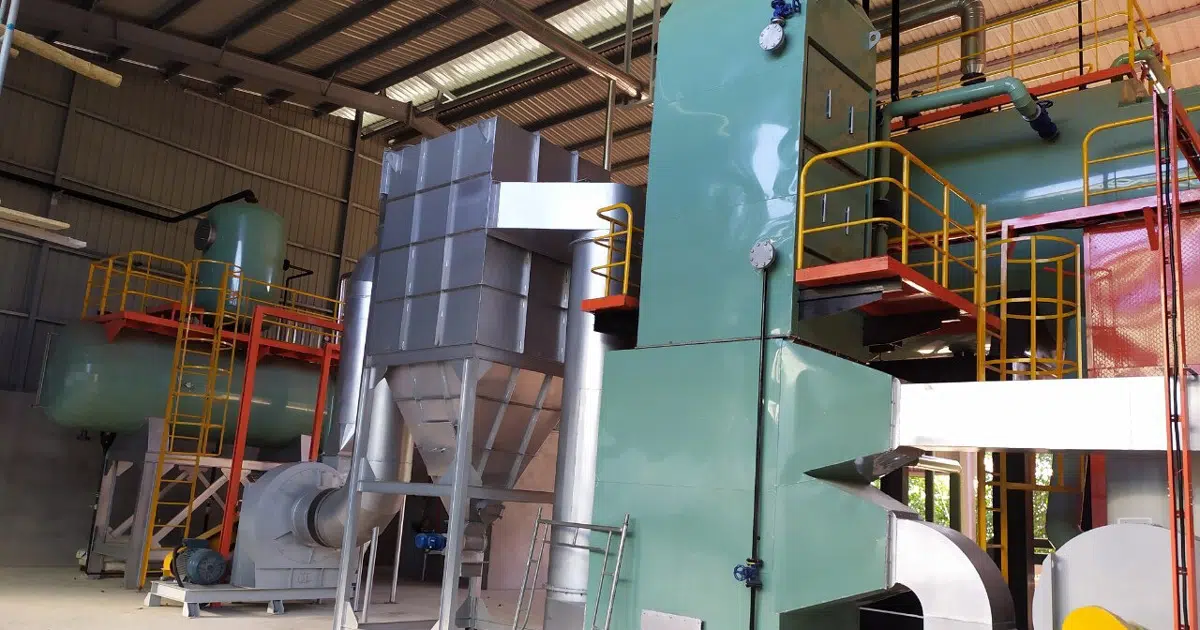
 Chaudière à vapeur au bois
Chaudière à vapeur au bois
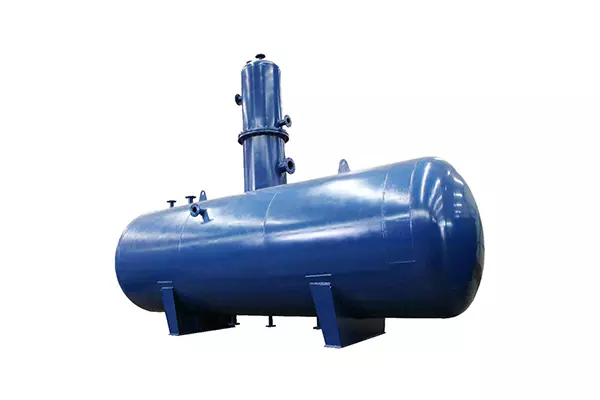
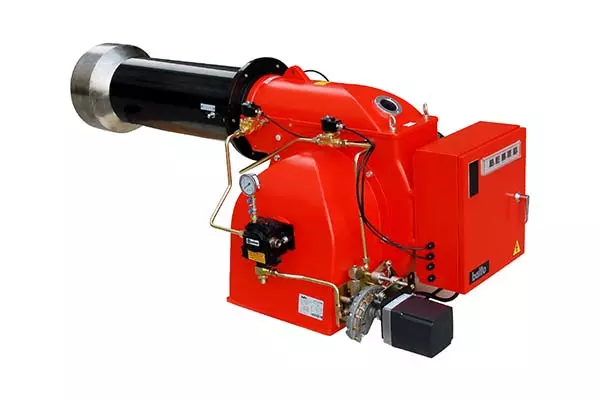
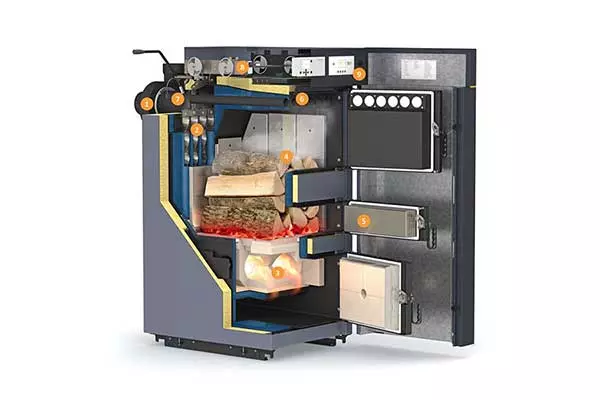
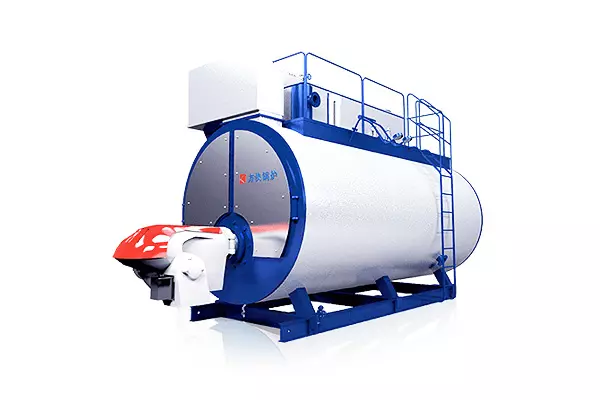



Vvoir les avis de nos clients
"Le générateur de vapeur de Fangkuai est parfait pour ma petite entreprise. Il est très facile à utiliser et nécessite un minimum d'entretien. Il est également très économe en énergie, qui m'a aidé à économiser sur mes factures d'énergie. Le service client de Fangkuai est également excellent. Ils sont très réactifs et toujours prêts à aider. Je recommande fortement les générateurs de vapeur de Fangkuai."
Ahmed
Egypte"Les générateurs de vapeur de Fangkuai sont excellents. Ils sont très faciles à utiliser et nécessitent un minimum d'entretien. Le service client de Fangkuai est également exceptionnel. Ils sont très réactifs et toujours prêts à aider. L'efficacité énergétique des générateurs de vapeur est également remarquable, qui m'a aidé à économiser sur mes factures d'énergie. Je recommande fortement les générateurs de vapeur de Fangkuai."
Marie
Espagne"Le service client de Fangkuai est de premier ordre. Ils m'ont aidé à choisir la chaudière parfaite pour mes besoins et m'ont fourni un excellent soutien tout au long du processus.. Le processus d'installation s'est également déroulé sans heurts et la chaudière a dépassé mes attentes. Il est très facile à utiliser et à entretenir, et l'efficacité énergétique est remarquable. Je recommande vivement les produits Fangkuai à tous ceux qui ont besoin de solutions de chauffage fiables et efficaces."
Juan
Mexique"Les générateurs de vapeur de Fangkuai sont excellents. Ils sont très faciles à utiliser et nécessitent un minimum d'entretien. Le service client de Fangkuai est également exceptionnel. Ils sont très réactifs et toujours prêts à aider. L'efficacité énergétique des générateurs de vapeur est également remarquable, qui m'a aidé à économiser sur mes factures d'énergie. Je recommande fortement les générateurs de vapeur de Fangkuai."
Marie
Espagne"J'ai acheté une chaudière à vapeur Fangkuai pour mon usine et elle fonctionne parfaitement depuis des mois maintenant. La qualité des matériaux et la construction de la chaudière sont impressionnantes. Il est également très économe en énergie, qui nous a permis d'économiser de l'argent sur nos factures d'énergie. Je recommande vivement les produits Fangkuai à tous ceux qui ont besoin de solutions de chauffage fiables et efficaces."
John
Etats-Unis"La chaudière à eau chaude de Fangkuai est incroyable. Il chauffe rapidement et efficacement, et l'eau reste chaude longtemps. Nous n'avons jamais eu de problèmes avec et cela a considérablement amélioré nos opérations quotidiennes. Le processus d'installation s'est également déroulé sans heurts et le service client était excellent.. Je recommande vivement les chaudières à eau chaude de Fangkuai."
Sara
Canada"Nous utilisons la chaudière à huile thermique Fangkuai pour notre usine chimique depuis des années et elle ne nous a jamais laissé tomber. La chaudière est très durable et peut résister à des conditions difficiles. Il est également très facile à utiliser et à entretenir, ce qui nous a permis d'économiser du temps et de l'argent sur la maintenance. Les chaudières à huile thermique de Fangkuai sont de premier ordre et je les recommande vivement à tous ceux qui ont besoin de solutions de chauffage fiables."
Chang
Chine"L'équipement auxiliaire de Fangkuai a rendu mon système de chaudière encore meilleur. La qualité du matériel est exceptionnelle et les prix sont très raisonnables. L'équipement a contribué à améliorer l'efficacité et les performances de mon système de chaudière, ce qui a permis de réaliser d'importantes économies. Je recommande fortement l'équipement auxiliaire de Fangkuai à tous ceux qui ont besoin d'accessoires de chaudière de haute qualité."
Mariek
ROYAUME-UNI"La chaudière à eau chaude de Fangkuai est incroyable. Il chauffe rapidement et efficacement, et l'eau reste chaude longtemps. Nous n'avons jamais eu de problèmes avec et cela a considérablement amélioré nos opérations quotidiennes. Le processus d'installation s'est également déroulé sans heurts et le service client était excellent.. Je recommande vivement les chaudières à eau chaude de Fangkuai."
Sara
Canada